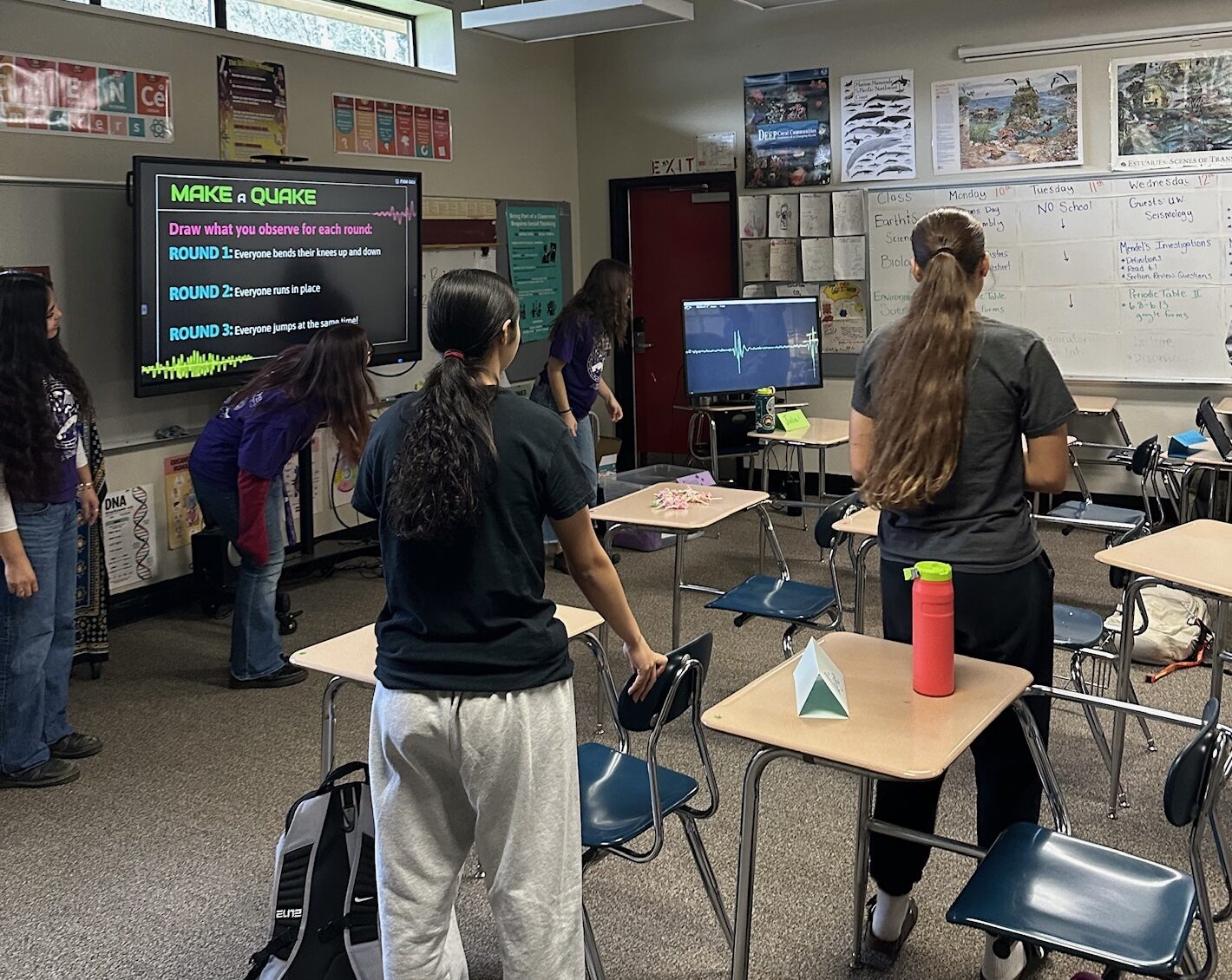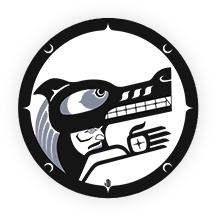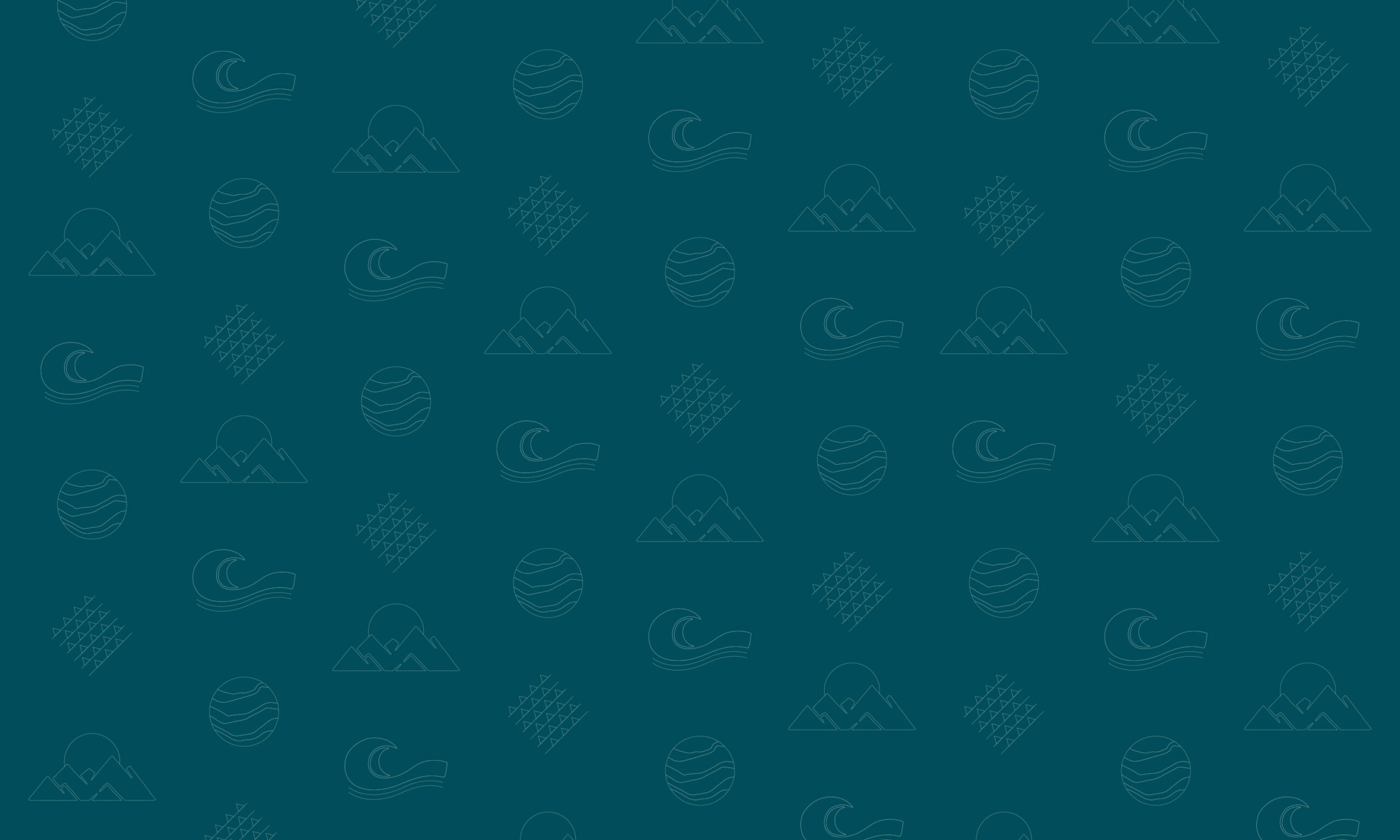
Cascadia Culture and geoScience Exchange Program
Makah – Qʷidiččaʔa·tx̌
The Makah Tribe has lived at Neah Bay in Washington state since time immemorial. There, the Qʷidiččaʔa·tx̌ (Makah) Tribe Villages have skillfully lived off the land and the sea and continue to practice their ancient culture today.
About
Program Overview

ʔux̌u·ʔaƛa·ksa (Hello all!). Communities along the coast of Washington and Oregon in the Pacific Northwest (i.e., Cascadia) are at risk of large megathrust earthquakes and their subsequent tsunamis. Though earthquakes don’t happen often in this region, they have the potential to be extremely devastating. University of Washington (UW) students on the 2025-2026 Makah CASE team will travel to and teach seismology at Neah Bay High School on the Olympic Peninsula, Washington, home to the Makah Indian Reservation. The goal of this program is to bolster community resilience to these geophysical events by teaching students about seismology, communicating about these hazards to the larger community, and even installing a seismometer at the high school.
The Makah CASE seismology program builds upon the seismology curriculum taught at Quileute Tribal School the previous school year, and it centers around a week-long seismology curriculum taught during UW’s spring break in March. In addition to a full week of teaching, the Makah CASE team will conduct multiple site visits to Neah Bay High School where they will teach lessons for the day, get to know teachers and students, and participate in various cultural and community activities. Additionally, the team will create an internship for Neah Bay High School students to gain experience as scientists, through which the students will install a RaspberryShake seismometer in the school. This will be their own school seismometer, and the data will be free and publicly available to all. The Makah CASE team will also share about their experiences beyond high school, in college, and at UW, all while providing resources and mentorship for Makah high schoolers.
The cultural exchange aspect of “CASE” is equally as important. Through this program, the Makah CASE team will engage with the Makah Nation to better understand their history and culture. Makah CASE team members will learn about traditional indigenous knowledge and histories from tribal members and Elders, will learn to speak and introduce themselves in Makah, and participate in various traditional cultural activities and events.
Overall, the seismology CASE program at Neah Bay facilitates a culture and science exchange between UW students and members of the Makan Nation, encourages community resilience to geohazards, fosters STEM identities of Makah high school students, and makes life-saving science accessible to a vulnerable community.
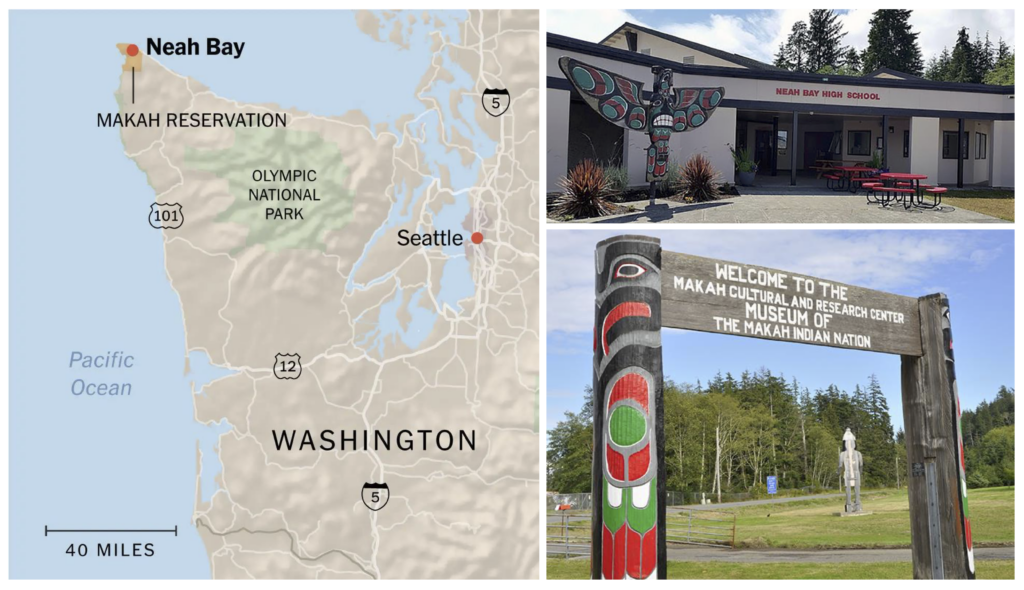
Program Outline
Fall Site Visit
- Teach (1 day seismology lesson)
- College Table at lunch
- Get to know students and community members
- Meet with high school interns
UW Spring Break
- Teach (5 day seismology, tsunami, and landslides curriculum)
- Participate in cultural activities
- Learn more Makah language skills
- Work with high school interns
Spring Site Visit
- Install school seismometer with our student interns
- Wrap up internship project and program for the year!
- Teach (1 day science communication & community resilience lesson)
Follow
2025-2026 Makah CASE Blog

Follow the journey of the Makah CASE program and hear from high schoolers in the program!
Learn About the 2024-2025 Makah CCASE Program
Meet The Team
Makah CASE Leadership

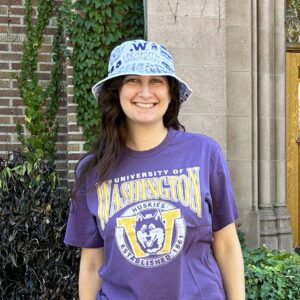
Julia Grossman
CCASE Program Co-Director, Makah CASE Lead
University of Washington
Julia Grossman is a PhD student at the University of Washington. For her research, she models earthquakes and tsunamis that could happen in the Pacific Northwest. After graduate school, Julia aspires to work at the intersection of geophysics research, hazard mitigation, and disaster risk reduction. She is especially passionate about pairing societally-relevant geohazards research with vital outreach efforts in at-risk communities. Two years ago, Julia was a member of the Quileute CASE team and learned a lot about integrating indigenous knowledge into culturally-sustaining geoscience lessons and about building strong community relationships. This year, Julia is excited to lead the second Makah CASE team to teach a seismology curriculum at Neah Bay High School in the Makah Indian Nation. She looks forward to fostering a love of science and to continuing to create meaningful connections with everyone at Neah Bay! In her free time, Julia enjoys hiking, photography, and talking about Washington’s very cool rocks!
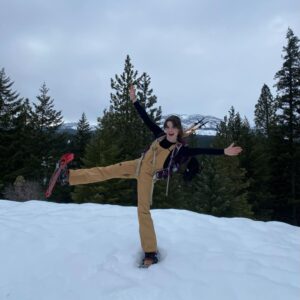
Nissa Stupakoff
Student Internship Lead
Burke Museum/Pacific Northwest Seismic Network
Nissa Stupakoff is a recent graduate of the University of Washington where she studied Earth and Space Science and Paleobiology. Her current research at the Burke Museum centers on geobiology, biostratigraphy, and evaluating biases in the taphonomic record of Antarctica. She also works at the Pacific Northwest Seismic Network as a Student Outreach Assistant, where she helps introduce communities across Washington State to topics in seismology and the Earth Sciences. Aside from geology, Nissa loves getting outside however she can by climbing, hiking, backpacking, and skiing. She is excited to join the Makah CASE team this year to continue developing her educational outreach skills, and to spread interest in STEM by building relationships within the Neah Bay community.
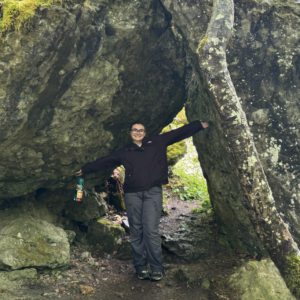
Deven Loska
Post-High School Mentorship Lead
University of Washington
Deven Loska is an undergraduate student at the University of Washington, where she studies Earth and Space Sciences with a focus on physics. At UW, she researches how much seawater is put into subduction zones, places where tectonic plates collide and create earthquakes– like the Cascadia subduction zone! She also uses data from glaciers in Greenland to study the relationship between melting ice, icebergs, and underwater tsunamis. Outside of research and academia, Deven enjoys hiking, painting, and swimming. This is Deven’s first year with the Makah CASE team, and she looks forward to learning more about Makah culture and building connections with the Neah Bay community! As a first-generation student, Deven is passionate about making science and higher education more accessible. If you have any questions about the first-generation college experience or applying to colleges, she’s always happy to talk!
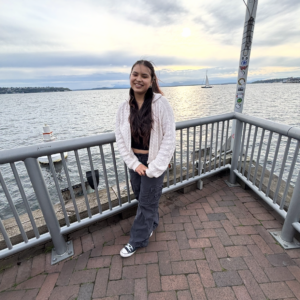
Anna Frank
Language and Culture Lead
University of Washington
Anna Frank is a senior studying American Indian Studies and Environmental Studies at the University of Washington. She is interested in working with Tribal communities and engaging with community members and youth. Her interests lie in land management and waterway restoration, blending Traditional Knowledge with Western sciences. Her passion for waterway restoration and access stems from a commitment to protecting ecosystems that are vital to Tribal cultural practices. Through her coursework, Anna has explored the intersections of Tribal sovereignty and environmental policy, with a focus on the sustainable management of natural resources. She hopes to pursue a career in environmental consulting or Tribal resource management, advocating for Indigenous perspectives in environmental decision-making. In her free time, she enjoys playing volleyball, exploring the Seattle area, and baking sweets. Anna cares about building strong relationships within the community by creating spaces for youth that foster a love of science and cultural knowledge. She is also passionate about promoting higher education opportunities and strengthening support systems at the university level.
Meet The Team
Makah CASE Partner Teachers & Staff


Holly Keedy
Science Teacher
Neah Bay High School

Hazel Greene
Language & Culture Teacher
Neah Bay High School

Paco (Bill) Monette
Woodshop Teacher
Neah Bay High School

